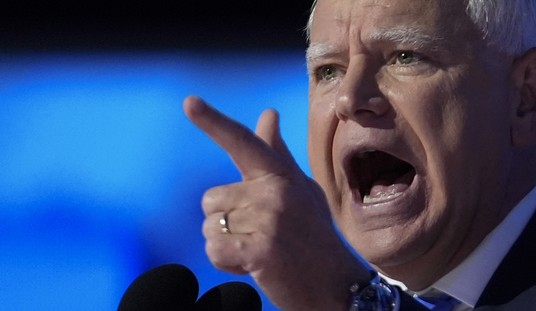Saudi Arabia launched airstrikes into Yemen a short time ago, with the Saudi ambassador in Washington telling reporters that the aim is to “to protect the people of Yemen and its legitimate government from a takeover by the Houthis.”
“The Gulf Cooperation Council countries tried to facilitate a peaceful transition of government in Yemen, but the Houthis have continuously undercut the process by occupying territory and seizing weapons belonging to the government,” Adel bin Ahmed Al-Jubeir said in a statement. “…The Houthis have reneged on every single agreement they have made and continue their quest to take over the country by violent means.”
“Based on the appeal from President Hadi, and based on the Kingdom’s responsibility to Yemen and its people, the Kingdom of Saudi Arabia, along with its allies within the GCC and outside the GCC, launched military operations in support of the people of Yemen and their legitimate government.”
Saudi Arabia, Qatar, Kuwait, Bahrain and the United Arab Emirates said in a joint statement that President Abd-Rabbu Mansour Hadi’s government had asked for help in battling the Iran-backed Houthis.
Reports Al-Arabiya:
Warplanes of the Royal Saudi Air Force bombed the positions of Yemen’s Houthi militia, destroying an airbase in Sanaa and most of the militia’s air defenses, Al Arabiya News Channel reported early on Thursday, citing Saudi sources.
King Salman bin Abdulaziz ordered the airstrikes on the Iran-backed Houthi militia on Thursday at 12 am Riyadh time, the news channel reported, adding that the kingdom’s air force was “fully in control of the Yemeni airspace.”
Shortly afterwards Saudi Arabia’s Ambassador to Washington Adel al-Jubeir announced that the kingdom had launched a military operation involving air strikes in Yemen against Houthi fighters who have tightened their grip on the southern city of Aden where the country’s president had taken refuge.
Al-Jubeir told reporters that a 10-country coalition had joined in the military campaign in a bid “to protect and defend the legitimate government” of Yemen President Abd-Rabbu Mansour Hadi.
“We will do whatever it takes in order to protect the legitimate government of Yemen from falling,” Jubeir said.
Al-Arabiya also reported a cyberwar component, saying that several Houthi websites had crashed.
Yesterday, while appearing in Riyadh with the British foreign secretary, Saudi Foreign Minister Prince Saud Al-Faisal hit at Iran and the Houthis.
The prince stressed that “it is not possible to grant Iran an undeserved deal” in the P5+1 nuclear negotiations.
On Yemen, he said, the Gulf Cooperation Council’s “aim is to provide the vehicle for the president to return peacefully to Yemen and provide the leadership as required to bring this country back.”
House Foreign Affairs Committee Chairman Ed Royce (R-Calif.) said the “takeover of southern Yemen by the Iranian-supported Houthis has led to chaos, threatening the national security interests of our regional partners and the United States.”
“Regional states, led by Saudi Arabia at President Hadi’s request, are taking action from the air,” Royce said. “The United States should support our Saudi and Gulf partners with appropriate logistical and intelligence support to combat this threat.”
National Security Council spokeswoman Bernadette Meehan said in a statement late Wednesday that President Obama “has authorized the provision of logistical and intelligence support to GCC-led military operations.”
“While U.S. forces are not taking direct military action in Yemen in support of this effort, we are establishing a Joint Planning Cell with Saudi Arabia to coordinate U.S. military and intelligence support,” Meehan said. “At the same time, the United States continues to closely monitor terrorist threats posed by al-Qaida in the Arabian Peninsula and will continue to take action as necessary to disrupt continuing, imminent threats to the United States and our citizens.”
“We strongly urge the Houthis to halt immediately their destabilizing military actions and return to negotiations as part of the political dialogue. The international community has spoken clearly through the UN Security Council and in other fora that the violent takeover of Yemen by an armed faction is unacceptable and that a legitimate political transition – long sought by the Yemeni people – can be accomplished only through political negotiations and a consensus agreement among all of the parties.”
The strikes came as the Obama administration resumed talks with Iran, which backs the Houthis, in Switzerland.
White House press secretary Josh Earnest was pressed at the briefing earlier today on whether they still consider Yemen a model for counterterrorism success.
“What the United States considers to be our strategy when confronting the effort to try to mitigate the threat that is posed by extremists, is to prevent them from establishing a safe haven. And certainly in a chaotic, dangerous situation like in Yemen, what the United States will do and has done is worked to try to support the central government, to build up the capacity of local fighters, and use our own technological and military capabilities to apply pressure on the extremists there,” Earnest replied.
“There’s no doubt that we would like to see a functioning central government in Yemen. We don’t see that right now. And that is why we’re supportive of the U.N.-led process to try to put an end to the violence and instability; to bring the sides, you know, all sides together to the table to try to resolve their differences; to build up the capacity of the central government; to build up the capacity of local forces; and to continue to apply pressure to extremists.”
But, Earnest maintained, “We do continue to enjoy the benefits of a sustained counterterrorism security relationship with the security infrastructure that remains in Yemen.”
State Department press secretary Jen Psaki acknowledged earlier today that Saudis “have legitimate concerns about the possible impact of current events in Yemen to their security, given their proximity.”
On Yemen as a success, she said “we have had success working on counterterrorism operations, and we expect and hope that will continue.”









Join the conversation as a VIP Member